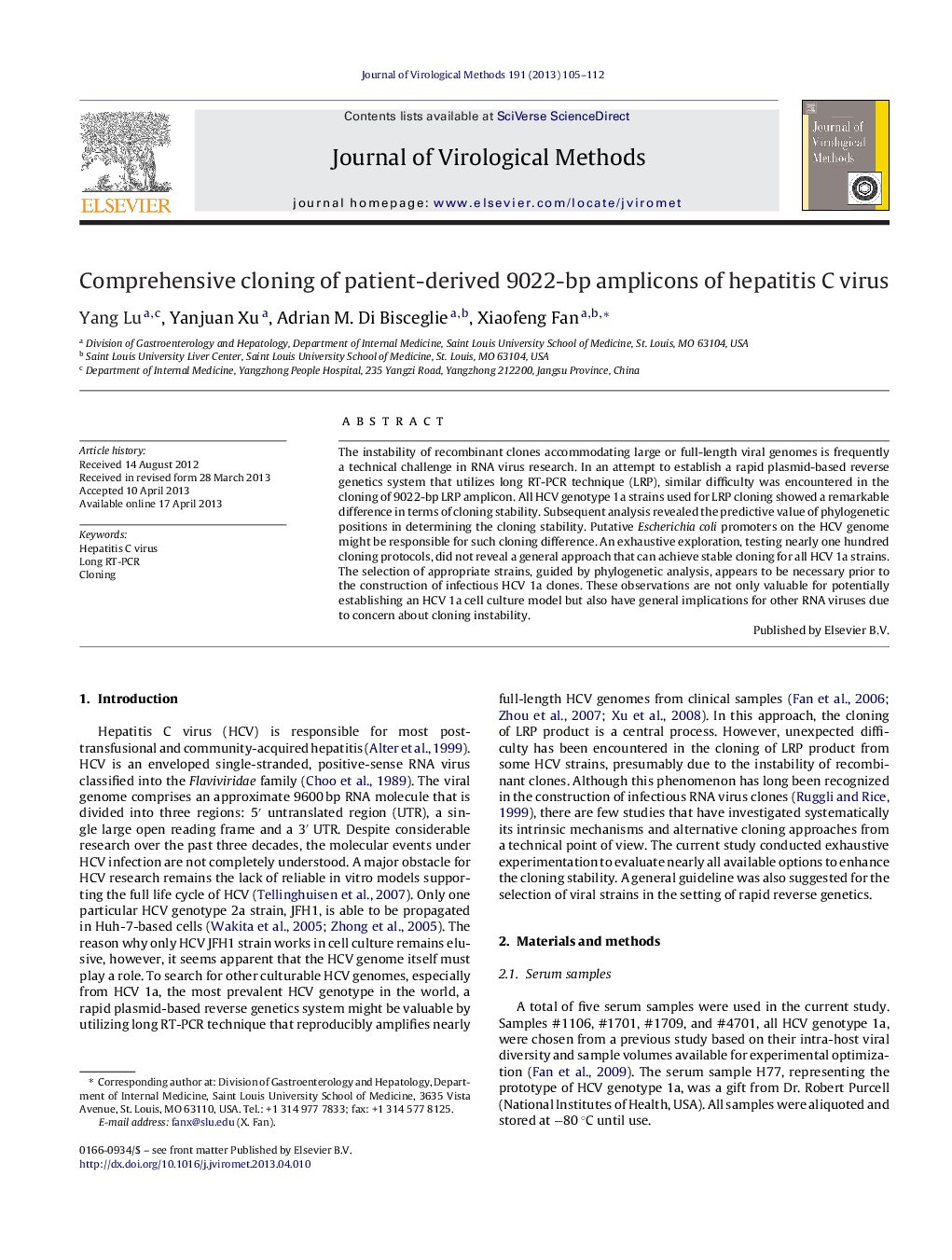| Article ID | Journal | Published Year | Pages | File Type |
|---|---|---|---|---|
| 3406654 | Journal of Virological Methods | 2013 | 8 Pages |
•Instability of recombinant clones harboring large or full-length viral genomes is a common but difficult issue in virological research.•Exhaustive experimentation that estimated nearly all available options to enhance the cloning stability.•The first report to reveal remarkable difference with regard to cloning instability among phylogenetic clades of hepatitis C virus genotype 1a.
The instability of recombinant clones accommodating large or full-length viral genomes is frequently a technical challenge in RNA virus research. In an attempt to establish a rapid plasmid-based reverse genetics system that utilizes long RT-PCR technique (LRP), similar difficulty was encountered in the cloning of 9022-bp LRP amplicon. All HCV genotype 1a strains used for LRP cloning showed a remarkable difference in terms of cloning stability. Subsequent analysis revealed the predictive value of phylogenetic positions in determining the cloning stability. Putative Escherichia coli promoters on the HCV genome might be responsible for such cloning difference. An exhaustive exploration, testing nearly one hundred cloning protocols, did not reveal a general approach that can achieve stable cloning for all HCV 1a strains. The selection of appropriate strains, guided by phylogenetic analysis, appears to be necessary prior to the construction of infectious HCV 1a clones. These observations are not only valuable for potentially establishing an HCV 1a cell culture model but also have general implications for other RNA viruses due to concern about cloning instability.
